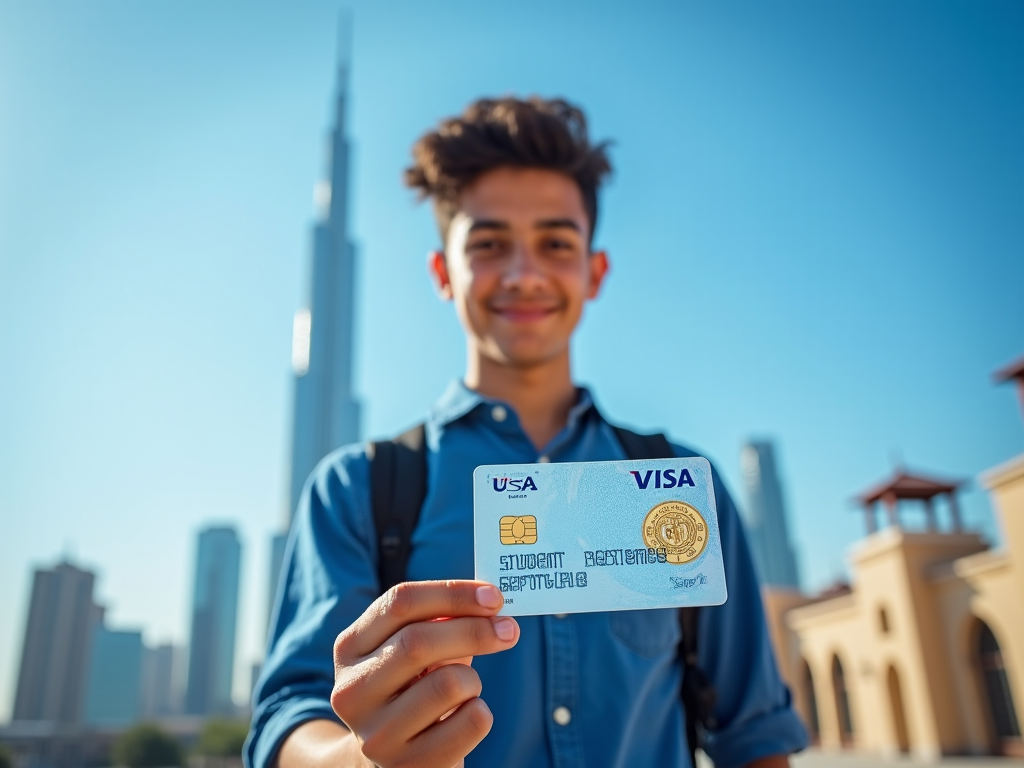Dubai, a hotspot for educational advancement and multicultural experiences, offers a variety of educational opportunities along with the provision for student residence visas. The emirate is home to numerous international universities, colleges, and specialized institutions that cater to a wide array of academic interests. This article explores the educational landscape in Dubai as well as the essential steps to obtain a student residence visa, enabling aspiring students to make informed decisions about their academic journey in the UAE.
The Educational Landscape in Dubai

Dubai’s educational framework is distinguished by its commitment to quality, diversity, and innovation. The city hosts over 60 universities and higher education institutions, featuring a blend of local and international establishments. This diversity allows students to choose from various disciplines including arts, sciences, business, and technology. Notable institutions such as the University of Dubai, American University in Dubai, and the British University in Dubai attract thousands of students annually.
Moreover, Dubai is recognized for its forward-thinking approach, often incorporating modern technology and methodologies in teaching. Many universities offer programs that align with global standards and provide invaluable internships and networking opportunities in the burgeoning job market of the UAE. Additionally, many educational institutions emphasize research and development, making it a thriving environment for aspiring researchers. This combination of quality, choice, and career prospects solidifies Dubai’s position as a leading destination for higher education.
Types of Educational Programs Available

Students in Dubai can choose from a diverse array of educational programs across different levels. The educational offerings can be classified into the following categories:
- Undergraduate Programs: Bachelor’s degrees are available in various fields including engineering, business administration, hospitality management, and health sciences.
- Postgraduate Programs: Students can pursue master’s degrees or MBAs, often with specialization options to enhance career prospects.
- Vocational Training: Institutions also provide vocational courses aimed at skill development in fields such as finance, marketing, and digital media.
- Language Courses: With a multicultural environment, there are numerous opportunities to learn different languages, including Arabic and English.
- Short Courses and Workshops: Many universities offer short-term programs that allow professionals to upskill or explore new areas of interest.
This extensive variety ensures that students can find a program that aligns with their career goals and personal interests, making the educational experience in Dubai both enriching and flexible.
For international students, obtaining a student residence visa is a crucial step toward studying in Dubai. The process is generally straightforward, but it involves several important steps. First, students must secure admission to a recognized educational institution in Dubai. Upon acceptance, the institution will initiate the visa process, usually guiding students through each stage.
The key steps to obtaining a student residence visa are as follows:
- Receive an acceptance letter from a recognized university or educational institution in Dubai.
- Submit necessary documents including a valid passport, photographs, health insurance, and academic certificates.
- Complete a medical fitness test as required for residency visa applications.
- Pay the required visa processing fees, which may vary depending on the institution.
- Attend an appointment to finalize the visa application process at the relevant authorities.
Once the visa is approved, students can enjoy the benefits of a residence visa, including the ability to live in Dubai for the duration of their studies, which ultimately enriches their academic experience.
Benefits of Studying in Dubai
Studying in Dubai offers numerous advantages that extend beyond academics. One of the primary benefits is the exposure to a diverse and multicultural society, which fosters a rich learning environment. Interacting with students from various cultural backgrounds enhances global awareness and interpersonal skills.
Additionally, the city’s strategic location serves as a gateway between the East and West, providing students with networking opportunities and exposure to global business practices. The UAE’s thriving economy and booming job market offer numerous internship and job prospects, especially in industries such as technology, finance, and tourism.
Moreover, Dubai’s vibrant lifestyle, coupled with world-class recreational and cultural options, contributes to a well-rounded educational experience. The availability of various extracurricular activities and events helps students develop leadership skills and encourages community engagement.
Overall, studying in Dubai prepares students not only academically but also personally, equipping them with essential skills to thrive in a globalized world.
Conclusion
Dubai presents a wealth of educational opportunities for students from around the globe, along with streamlined processes for obtaining student residence visas. With its commitment to educational excellence, diverse programs, and vibrant cultural experiences, Dubai stands out as a premier destination for higher education. Those considering studying in this dynamic city can look forward to a rich academic environment that fosters growth and opportunity, setting the stage for a successful future.
Frequently Asked Questions
1. What types of institutions are available for higher education in Dubai?
Dubai hosts a variety of institutions, including universities, colleges, specialized schools, and vocational training centers, offering diverse programs in multiple fields.
2. Can international students work while studying in Dubai?
Yes, international students can work part-time while studying, provided they obtain a work permit and do not exceed the allowable working hours set by their institution.
3. How long is a student residence visa valid in Dubai?
A student residence visa is typically valid for one year and can be renewed annually, based on the student’s enrollment in an educational program.
4. Is it necessary to have health insurance to obtain a student visa in Dubai?
Yes, international students are required to have health insurance coverage as part of the student residence visa application process.
5. How can I improve my chances of getting accepted into a university in Dubai?
To improve your chances, ensure that you meet the academic requirements, submit a complete application with compelling personal statements, and provide strong letters of recommendation.
